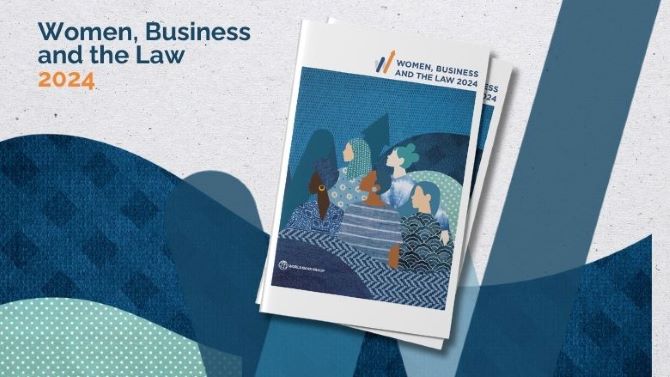Policy Indicators Group
What's new
-
 Policy Indicators Briefs
Policy Indicators BriefsUsing Building Regulations to Lower Risks from Disasters and Strengthen Private Sector Resilience
Streamlined, transparent building regulations can lower disaster risks across income levels, primarily by enhancing economies’ capacities to anticipate, prepare for, recover, and learn from natural shocks. It also helps reduce disruptions to their operations.
-
 Policy Indicators Brief
Policy Indicators BriefThe Advancement of Artificial Intelligence (AI) in Commercial Dispute Resolution
AI has strong potential to boost productivity, including in commercial dispute resolution. It can streamline document review, research, discovery, and strategy. Yet, its adoption faces challenges, including high cost, ethical concerns, and unequal global capacities. Without targeted strategies, lower-income economies risk being left behind in the transformation of legal practice.
Key and Flagship Resources
-
Business Ready 2024
Business Ready (B-READY) is a new World Bank Group corporate flagship report that evaluates the business and investment climate worldwide. It replaces and improves upon the Doing Business project. B-READY provides a comprehensive data set and description of the factors that strengthen the private sector, not only by advancing the interests of individual firms but also by elevating the interests of workers, consumers, potential new enterprises, and the natural environment. This 2024 report introduces a new analytical framework that benchmarks economies based on three pillars: Regulatory Framework, Public Services, and Operational Efficiency. The analysis centers on 10 topics essential for private sector development that correspond to various stages of the life cycle of a firm.
-
 Women, Business and the Law 2024
Women, Business and the Law 2024Women, Business and the Law 2024 is the 10th in a series of annual studies measuring the enabling conditions that affect women’s economic opportunity in 190 economies. WBL 2024 introduces two new indicators—Safety and Childcare—and presents findings on the implementation gap between laws (de jure) and how they function in practice (de facto). This study presents three indexes: (1) legal frameworks, (2) supportive frameworks, and (3) expert opinions on women’s rights in practice in the areas measured. The study’s 10 indicators—Safety, Mobility, Workplace, Pay, Marriage, Parenthood, Childcare, Entrepreneurship, Assets, and Pension—are structured around the different stages of a woman’s working life.
-
Subnational Business Ready - EU Series
Subnational B-READY studies assess the business environment across different locations within countries and regions, adapting the B-READY methodology to local contexts. The assessments provide detailed, quantitative data and analyses on topics that contribute to a dynamic, resilient private sector. Explore Subnational in-depth country studies to see how these insights help drive targeted policy reforms and support inclusive economic growth.
-
Policy Indicators Briefs (PIBs)
Policy Indicators Briefs (PIBs) provide policy-oriented analysis grounded in the World Bank’s data, research, and global evidence. PIBs translate complex findings into clear insights for policymakers on economic growth, job creation, firm dynamics, productivity and innovation, regulatory reform, and gender equality. Each brief synthesizes rigorous analytics and the wider literature to highlight actionable implications for economic policy and public debate. Each brief is designed to help readers understand key challenges and design effective reforms.
-
 Enterprise Analysis Research
Enterprise Analysis ResearchThe Enterprise Analysis Unit's research aims at understanding how the business environment affects firm performance in developing countries. Data from the Enterprise Surveys serves as the primary input, complemented with similar firm-level surveys and other relevant data sources.
-
 Enterprise Analysis Country Reports
Enterprise Analysis Country ReportsCountry Highlights summarize the key findings from the Enterprise Survey, including performance and business environment indicators. Analysis includes changes over time, indicator differences with the country’s geographic region and to other countries with similar income levels, and differences between a country’s subnational locations.
-
Doing Business Archive
In September 2021, World Bank Group management decided to discontinue the Doing Business report. However, the Doing Business website continues to be publicly available as an archive of knowledge and data.
Latest DECIG Working Papers
Policy briefs and blogs
- Defying Outages : The Struggles and Strategies of Businesses Facing Unreliable Electricity
- Unlocking Potential: Legal Pathways to Boost Women's Labor Force Participation in the Middle East and North Africa Region
- Punching Above Their Weight: Insights from Rwanda and Georgia’s B-READY Performance
- Spillovers in ICT adoption from formal to informal firms: Evidence from Zambia
- Using Building Regulations to Lower Risks from Disasters and Strengthen Private Sector Resilience




